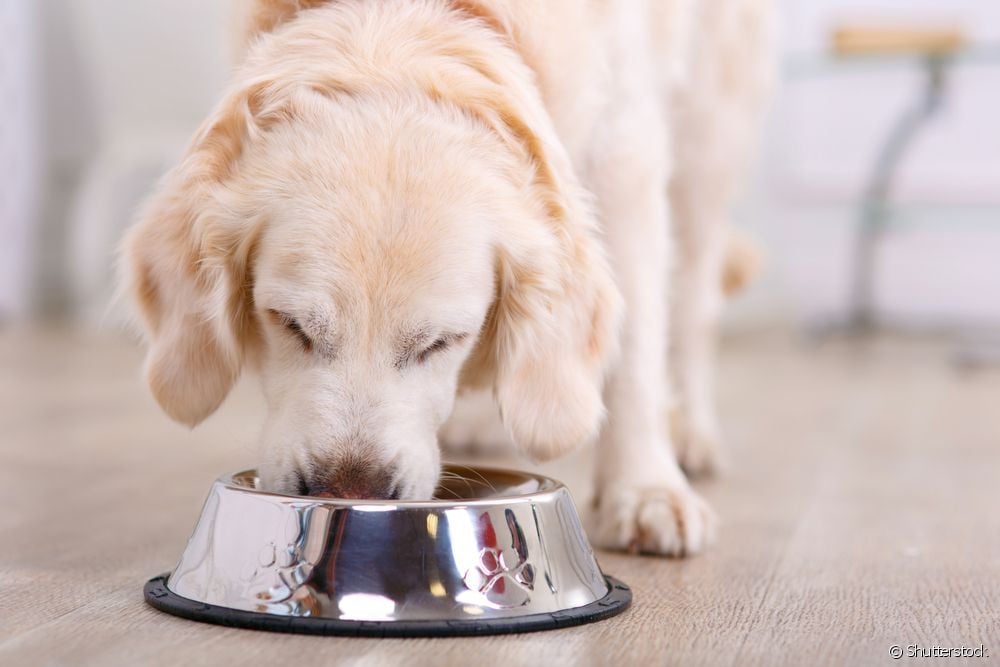High phosphorus in dogs: what does it mean?

Table of contents
High phosphorus in dogs happens when some change in the body causes the accumulation of this mineral. Despite all the benefits that phosphorus brings to the animal, excess can lead to serious problems and imbalances in metabolism. Hyperphosphatemia has different causes, but is usually related to kidney problems in the dog. High phosphorus is usually associated withhigh creatinine and high urea in dogs, which are also quite serious (and can affect other animals, as is the case with high urea in cats, a very common condition in the species). Next, understand more about hyperphosphatemia and why it can be so dangerous for your dog's health.
Why is high phosphorus in dogs dangerous?
Phosphorus is a fundamental mineral for the proper functioning of the dog's body. It is mainly responsible for the formation and maintenance of bones, being essential in the support of the canine skeleton. However, excess of this mineral is worrying. High phosphorus (or hyperphosphatemia) is a type of azotemia in dogs, a condition characterized by a high concentration of substances in the blood, serum or bloodstream.As well as high phosphorus, high creatinine or high urea in dogs can also occur. High phosphorus in the body is serious because it causes an increase in the production of parathyroid hormone (PTH), as well as causing mineralisation of cells. It is very common for high phosphorus to cause renal calcification, since the mineral is largely absorbed by the kidneys.Thus, it can greatly compromise the regular functioning of this organ.
See_also: Cat anatomy: infographic explains how feline paws workWhat causes high phosphorus in dogs?
High phosphorus in dogs up to the first year of life is very normal, as the dog's body and skeleton are still developing. However, high phosphorus after this age requires attention. As phosphorus is consumed in food, it is common for the problem to lie in an inadequate diet. Hypervitaminosis D and an exaggerated supplementation of vitamins for dogs can lead toProblems such as hemolysis, muscle necrosis, bone injuries, tissue trauma and hyperthyroidism are also possible causes. Finally, kidney disease can also lead to high phosphorus. With this, we can see that hyperphosphatemia (unless in puppies) is always linked to another disease.
Kidney disease is the leading cause of azotemia in dogs
Among all the causes of high phosphorus in dogs, kidney disease is the most frequent. This is because the kidney is responsible for filtering and absorbing phosphorus. A dog with a kidney problem has this function impaired. As a result, phosphorus cannot be excreted properly. When this happens, it ends up accumulating in the body, leading to hyperphosphatemia which, in turn, can end up causingTherefore, renal dogs need special care to control the concentration of phosphorus in the body.

Kidney disease can also cause increased creatinine and urea in dogs
The kidneys excrete not only phosphorus but other minerals as well. Therefore, kidney diseases often cause different azotemia conditions in dogs. High urea in dogs is a well-known problem. As with phosphorus, the damaged kidney cannot eliminate this substance from the body. Therefore, it accumulates leading to high urea levels in dogs. The same canoccur with creatinine, which should also be eliminated by the kidneys. Increased phosphorus, creatinine and urea in dogs are signs of kidney disease in the dog and need to be investigated and controlled.
How to lower high phosphorus in dogs?
High phosphorus needs to be reduced so that levels return to the ideal standard. For this, it is essential to be careful with the diet. If you have a renal dog or who is hyperphosphatemia for other reasons, it is important to implement a diet with low phosphorus. In addition, the use of phosphorus chelators in the diet, substances thatFluid therapy is also a popular treatment. Any change in diet should be discussed with a veterinary specialist first.
In addition, since high phosphorus is always a secondary condition to another, the best way to lower its concentration is by tackling the actual source of the problem. When faced with a high phosphorus situation, symptoms other than this should be evaluated by tests to find out the real disease behind the problem.
How to lower urea and creatinine in dogs?
Finding high creatinine and urea in a dog that has hyperphosphatemia is quite common, since all three problems can be associated with kidney disease. Therefore, it is common for the treatment of all these conditions to happen at the same time. But after all: when diagnosing high creatinine and high urea levels in dogs, how to lower? As with high phosphorus, dietary changes should beIt is essential to reduce salt intake and implement a low-protein diet. One tip is to invest in plant proteins, which are easier to digest than traditional proteins. Investing in a kidney food is the best way to avoid high phosphorus, creatinine and urea in the dog, as it is specially formulated for pets with malfunctioning kidneys. Another way is to invest in a kidney food.of how to lower urea and creatinine in dogs is through fluid therapy.
See_also: Dog crying: learn how to identify what your dog means and what to do about it
